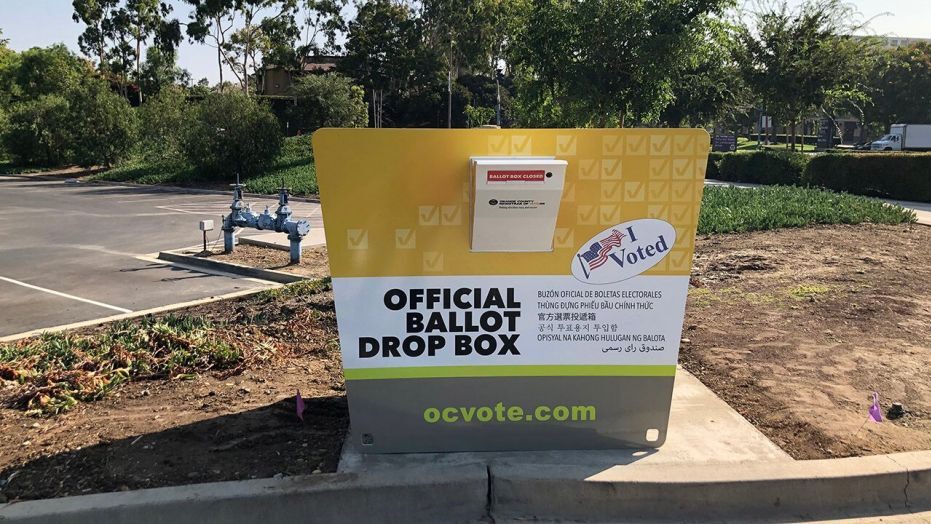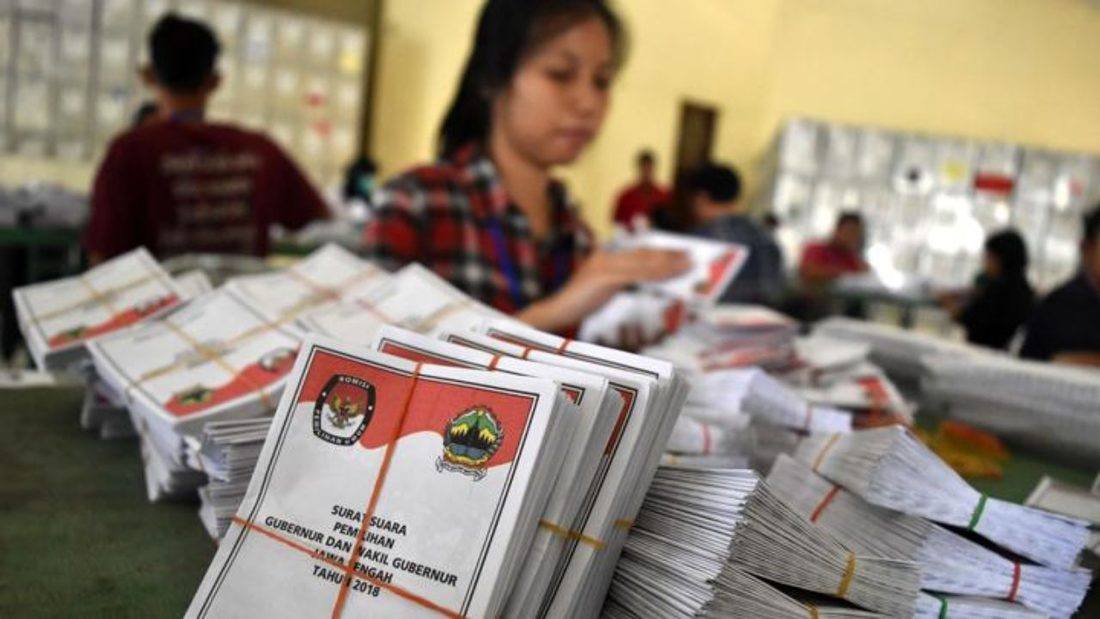The average age of France’s more than 35,000 mayors is 62 and less than 4 percent are under the age of 40. France’s youngest mayor, Rémy Dick, is therefore something of an exception. He embraced the role at the tender age of 22 but it wasn’t easy stepping into those big shoes. As the country prepares to vote in municipal elections, we meet him on the campaign trail in his hometown of Florange.
Advertising
Rémy Dick has a firm handshake, a brisk walk, and a ready smile as he goes door to door canvassing with one of his co-listers. Undeterred by the pouring rain, he juggles the umbrella in one hand and leaflets in the other.
“Our objective is to reach 3,000 homes,” he says confidently. “We’ve visited 2,400 so far.” Five days before polling day, he admits they probably won’t make the target.
He knocks on the door of a modest two-storey house overlooked by the imposing, new ArcelorMittal steel plant.
An elderly man leans out of his upstairs window and shouts out that he’s already prepared his list of candidates, suggesting a thumb’s up for Dick’s Florange en mouvement list.
Jérome, a retired soldier, says the mayor’s youth is his strong point.
“He’s not afraid of throwing himself into things, the older ones weigh up the for and against and then err on the side of caution.”
“And when I make mistakes I admit to it,” the mayor chips in.

The fight to earn legitimacy
Rémy Dick has made mistakes, particularly in the early days. He was thrust into the post of mayor in 2016 when the then-mayor suddenly resigned and the other members of the local council decided it was time for a radical change. They pushed Dick, then aged 22, to the fore.
“Nobody wanted the post. So they turned to me. I was the youngest and studying full-time. Most thought I was a credible choice and I had the support of a leading figure in my political group – the Republicans. When he chose to put his trust in a young person, the others followed.”
Dick had been a member of the local council for two years but lacked experience and knowledge of political codes. Stepping into the mayor’s shoes was very difficult.
“It was a tumultuous beginning. In the first six months you ask yourself everyday what you’re doing there and why you got into it. I had to earn respect from staff. I’m in charge of 200 public sector workers, I have to give them instructions. It took time to have the necessary authority, for them to respect me as an employer and as their mayor.”
The memorable worst moment was giving his first speech, just the day after becoming mayor on 1 December 2016.
“I had to give a speech to the firefighters for their annual Saint Barbe celebration. I didn’t know the firefighters, didn’t know the institution, the staff, or the subject, and I turned up in a short-sleeved shirt, without a tie. I didn’t know the dress code. My speech was pathetic, I realise that now.”
Impacting on peoples’ daily lives
Things have radically improved since then, and just over a year later at the customary New Year’s address Dick finally felt he could wear the mayoral costume.
“Several local people came to me and said ‘Mr. Mayor, after this speech, you are no longer the young mayor, you are simply the mayor’. It was the moment I finally felt I’d grown wings, when I was up to the task.”
The tasks of a mayor include handling budgets, notably funding or de-funding a myriad of associations, issuing building permits, dealing with primary schools, roads, local transport and public health issues such as pollution and rubbish collection. In short, he and his team of 200 have a major impact on daily life.
“What drives me, above all, is that you realise you can have an impact on things. If you’re personally committed you can improve people’s daily lives. Everything you do counts. You realise that the energy you put into something is not in vain.”
Mayor and part-time history student
Rémy Dick is a high-energy mayor, juggling his studies around his 9 to 5 Monday to Friday hours at the town hall. Added to that, there are the assemblies and evening functions, all for a monthly salary of €1,500.
In the lead up to the elections he has put his studies on the back burner.
“Being a mayor and a student is compatible outside elections, but as we’re in the middle of campaigning I admit I’ve skipped classes. Every available moment is spent preparing and distributing leaflets and canvassing.

Florange is not Germinal
The town of Florange, population 12,000, grew up and thrived thanks to the steel industry. But the demise of steel led to the closure of many plants, most famously two of steelmaker ArcelorMittal’s blast furnaces back in late 2012.
One eighth of Florange’s working population is now unemployed.
The mayor’s powers don’t extend to deciding on the policies of employment, but he hopes to attract investment by giving a more positive image of his hometown, and redress some of the clichés.
“In electing France’s youngest mayor the town council at the time gambled on something positive. People in Florange had had enough of being the symbol of the de-industrialisation of France. We were sick that journalists portrayed the town as something out of [Victor Hugo’s] Germinal – a dirty, industrial, negative French town.
“We want to turn that image around. Florange is still an industrial town, we have 4,400 jobs in industry and we should be proud of that.”
He highlights the investment of ArcelorMittal “€200,000 in Florange since 2012” and the new hot dip galvanizing line which cost €80 million euros.
“It uses the very latest technology. It’s secured 85 jobs and created 15 new ones on the site.”
He admits there’ve been plenty of complaints from locals though, notably those who have a direct view on the plant.
The ‘work more to earn more’ philosophy
Rémy Dick is a card-carrying member of the right wing Republicans party and his inspiration is former president Nicolas Sarkozy who ran for re-election in 2007 with the slogan “work more to earn more”.
“I’m on the conservative right and will remain on the right because I still believe in this Republican idea of a meritocracy. But in local politics when you’re dealing with hospitals, schools and swimming pools being on the right or left doesn’t mean much, you have to be able to work with people with different political affiliations.”
For the moment he’s more interested in getting things done than chewing the party political fat.
“Life within a party is anecdotal compared to real political life. What’s important is serving people, not ideas.”

This interview is part of the Spotlight in France podcast. Click here to hear the report.


